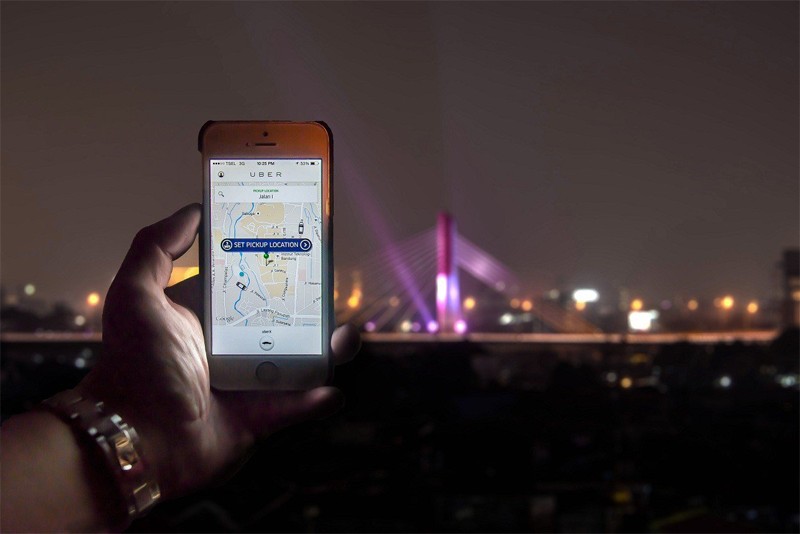Popular Reads
Top Results
Can't find what you're looking for?
View all search resultsPopular Reads
Top Results
Can't find what you're looking for?
View all search resultsFintech changing finance
Change text size
Gift Premium Articles
to Anyone
T
he burgeoning local financial technology scene is changing the way Indonesians access financial services, with an ambitious plan to reach the huge proportion of the population with no access to banks.
At the first-ever Indonesia Fintech Festival and Conference, which opened on Monday, a host of different fintech services are being presented, from mobile wallets to hassle-free micro lending and no-face time capital market investment. There are even fintech startups specifically targeting cooperatives and farmers around the country.
“This is a breakthrough to more inclusive and accessible financial products and services for the broader public,” Financial Services Authority (OJK) chairman Muliaman Hadad said in his opening speech. The festival has been organized by the regulator and will take place at the Indonesia Convention Exhibition until Tuesday.
Investment in fintech rose fivefold in the Asia-Pacific region to US$2.7 billion in the first three months of this year from the same period a year ago. This has occurred alongside a growth in internet usage in Indonesia, with a third of its 250-million population having access to the internet, while around a fifth have no bank accounts.
Recently, ojek (motorcycle taxi) mobile app Go-Jek rounded up US$550 million in funding from multinational private equity firms KKR & Co. and Warburg Pincus LLC as it developed its Go-Pay service that enables customers to store funds in a virtual account and transact all Go-jek services — from ojek rides and food delivery to beauty and cleaning services — without cash.
Modalku, a peer-to-peer lending platform that pools funds from the public and directs them into small and medium enterprises (SMEs), also recently announced a S$10 million investment by venture capital firm Sequoia India.
In Indonesia alone, transactions through fintech are estimated to have amounted to Rp 40 trillion in the past two years alone, according to the OJK’s deputy commissioner for non-bank financial institution supervision, Dumoly Pardede.
Payment services and stock-market investment are also possible with fintech. Payment gateway Doku offers an electronic wallet that can store and withdraw funds, and even be used for physical transactions at many local retailers and online shops. Meanwhile, mutual fund marketplace Bareksa lets its customers buy mutual funds without having to go to physical offices.
At the fintech festival, startups are showcasing their out-of-the-box fintech ideas.
Flip, for instance, allows interbank money transfers free of charge, as opposed to existing traditional bank transfers that cost around Rp 6,500 (5 US cents) per transfer. The enterprise now has 26,000 users with 900 to 1,100 transactions per day.
Meanwhile, OnlinePajak allows companies to do their tax forms online, having partnered with the tax office in the collection of Rp 1 trillion this year from 300,000 taxpayers across the country, including 6,000 companies such as publicly listed diversified conglomerate Astra International.
Other innovations show an interest in financial inclusion. Kanopi Asia, which is among the 12 grand finalists of the fintech festival’s “Startup Competition”, provides low-cost branchless savings accounts for cooperatives that have traditionally relied on a plethora of documents in their operations, leading to inefficiency.
Three-quarters of Indonesian fintech firms have been operational for less than two years, with a quarter of them conducting online lending with less than 100 staff members, according to Deloitte’s 2016 Fintech Indonesia Survey released at the event, providing a challenge for the infant businesses to scale up and sustain growth.
Some have expressed concern about a potential bubble that could burst in the global fintech sector as a result of over-investment at such an early stage.
“The current fintech boom does look different to the dotcom bubble,” said partner and president director of McKinsey Indonesia, Phillia Wibowo, citing data that showed reasonable valuation and more connected mobile devices now, in comparison to the 1999 dotcom bubble. Companies targeting capital markets are also far fewer and more mature in age, she added.
President Joko “ Jokowi” Widodo, who aims to see 1,000 technopreneurs by 2020 to turn Indonesia into a regional digital powerhouse, will speak at the event on Tuesday, followed by Finance Minister Sri Mulyani Indrawati, Coordinating Economic Minister Darmin Nasution and Trade Minister Enggartiasto Lukita, among others.
_________________________________________
To receive comprehensive and earlier access to The Jakarta Post print edition, please subscribe to our epaper through iOS' iTunes, Android's Google Play, Blackberry World or Microsoft's Windows Store. Subscription includes free daily editions of The Nation, The Star Malaysia, the Philippine Daily Inquirer and Asia News.
For print subscription, please contact our call center at (+6221) 5360014 or subscription@thejakartapost.com










